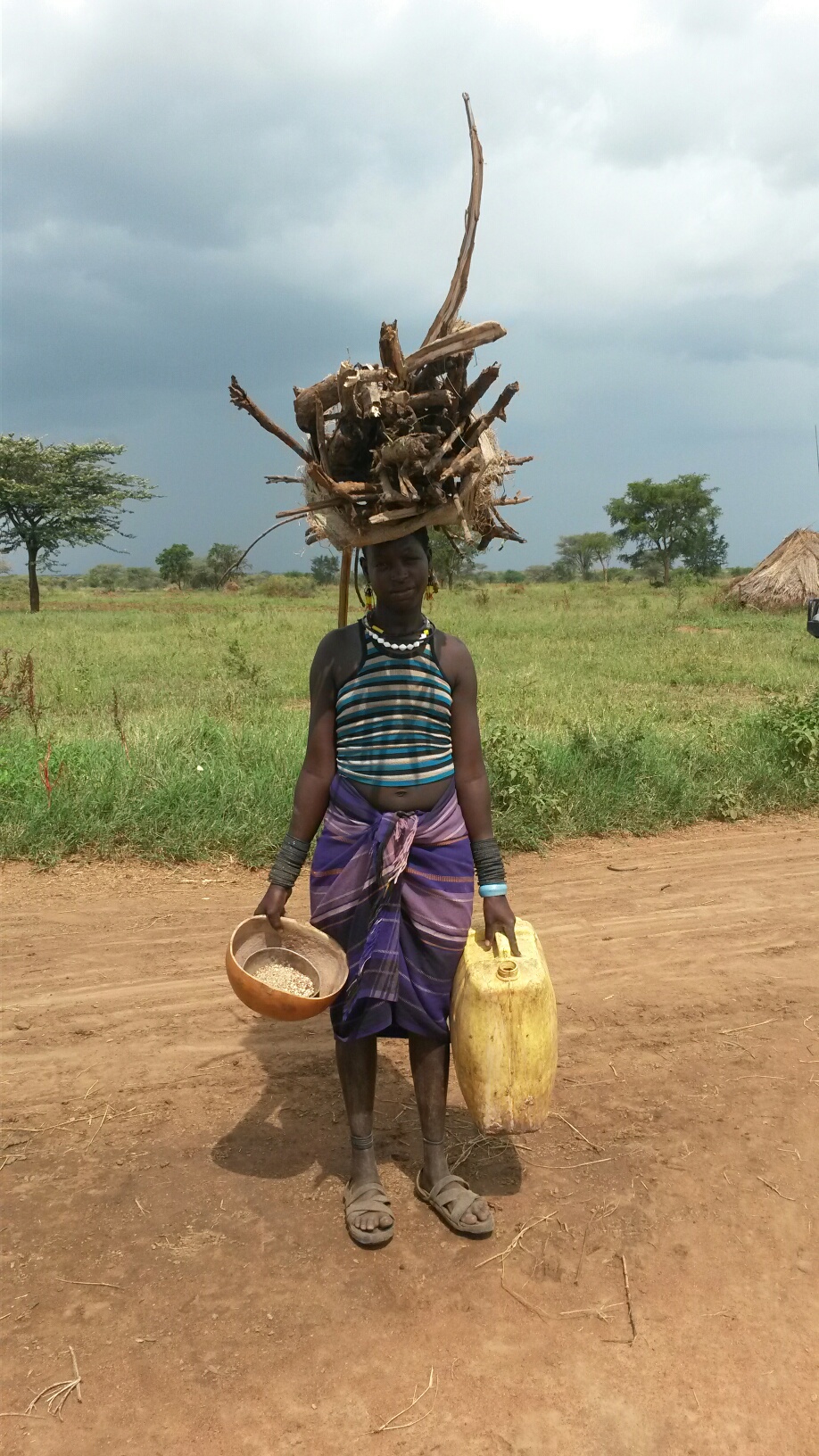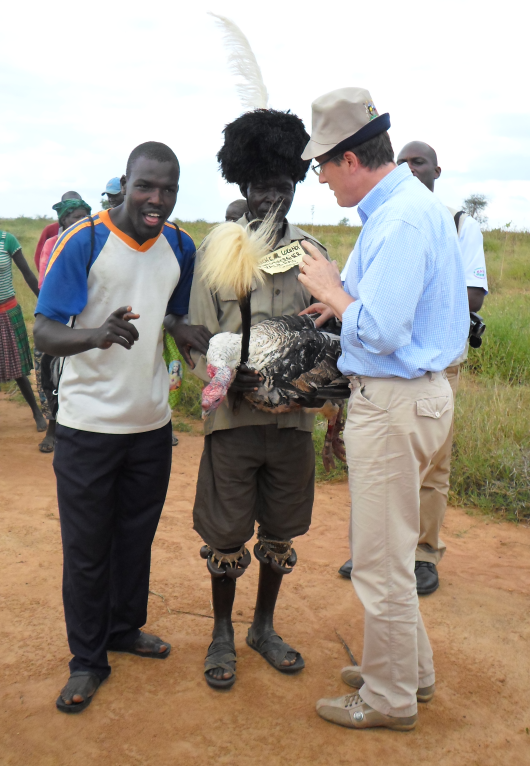Karamoja, Uganda: a low investment, high impact initiative
According to conventional wisdom, development aid requires massive investments to spur economic growth and bring about sustainable improvements in developing countries. New ways of thinking about development are challenging this notion, and among them, “resilience-building” aimed at increasing self-reliance in aid recipients is fast turning into ground-breaking projects at the United Nations, translating these new ideas into concrete actions on the ground. This article introduces our readers to one such resilience-building initiative implemented by the Food and Agriculture Organization of the United Nations (FAO) in the Republic of Uganda through the Agro-pastoral Field School methodology. It is written by a high-level UN expert who has visited this flagship FAO project where this new approach is being implemented. This is his report.
Overview
A resilience-building approach to aid does not require massive investments: to achieve high impact, it works on several “keyboards” at once. It combines learning about agricultural best practices (crop, livestock production, land and water management) with savings and loan schemes while strengthening social dynamics and social empowerment at group and community levels.
The innovative element of this approach ‒ also called:
“Caisses de Résilience” (CdR)
A integrated community-centered approach, linking social, technical and financial dimensions in a mutually reinforcing way.
The combination of the three dimensions has shown to have a multiplier effect in the livelihoods of farmers and pastoralists through the accumulation and diversification of income and household and community assets, two key sources for increasing livelihood resilience. Put another way: communities are thus in a better position to prevent and/or recover from shocks caused by natural or man-made disasters. Economic growth is less fragile.
The Karamoja Resilience-building Initiative
I had the opportunity to visit Karamoja last year and witness this FAO promising good practice first hand. The striking feature is the fact that it promotes a way of working which places vulnerable communities at the centre of risk management by strengthening their capacities. This will enable them to better anticipate and manage risks, as well as recover from shocks and crises. The caisse de résilience approach is also extremely flexible and adapts to various contexts.
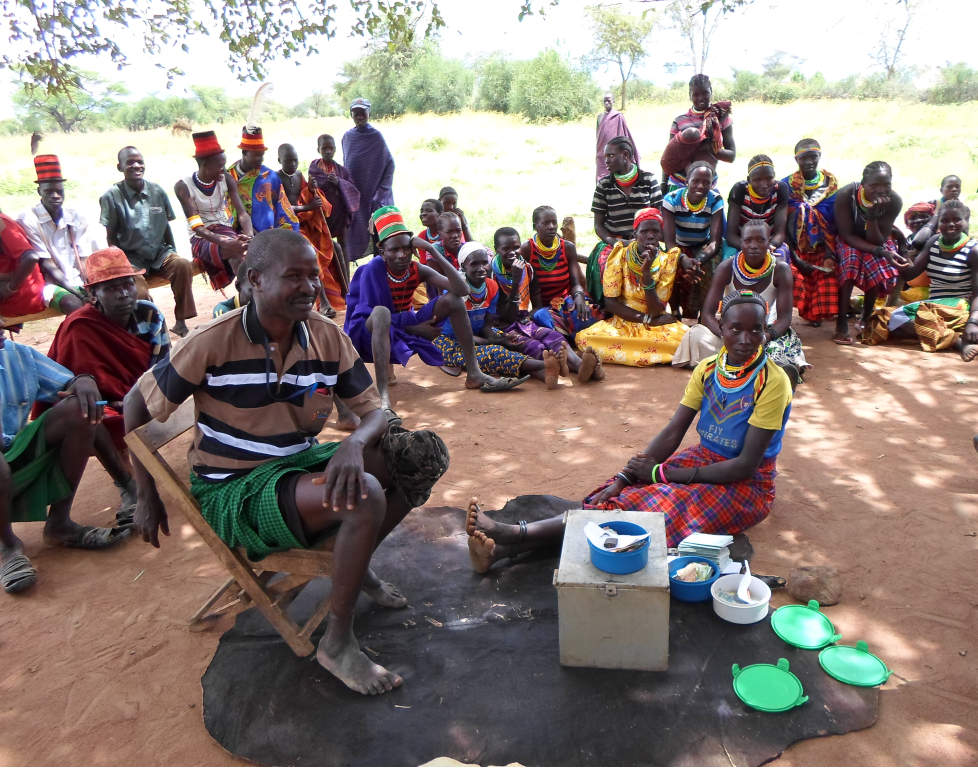
The Karamoja region is one of the areas most vulnerable to climate change and rainfall variability in Uganda. It is generally characterized by poor rainfall distribution and reliability, manifested through prolonged dry spells and flash floods. The magnitude, frequency and severity of above-mentioned hazards have increased over the past decades, which have seriously eroded local productive assets and traditional coping capacities that support livelihoods. Unpredictable and uneven rainfall are increasingly leaving households more vulnerable and unable to cope or adapt to climate-related shocks.
The approach
Since 2007, Agro-pastoral Field Schools in Karamoja have been implemented thanks to the support of key partners’ resources and a total of 400 are now operationally active. FAO has a network of 15 Non-governmental Organizations that are responsible for the implementation of Agro-pastoral Field School day-to-day activities, as government extension services, providing technical backstopping of facilitators. An estimated 12 000 direct beneficiaries were reached in Karamoja through this methodology, with a large spill-over effect of the approach at the wider community level.
Caisses de résilience in Karamoja are tailored to strengthen resilience among agropastoral communities that face recurrent hazards, such as drought, floods and transboundary animal diseases.
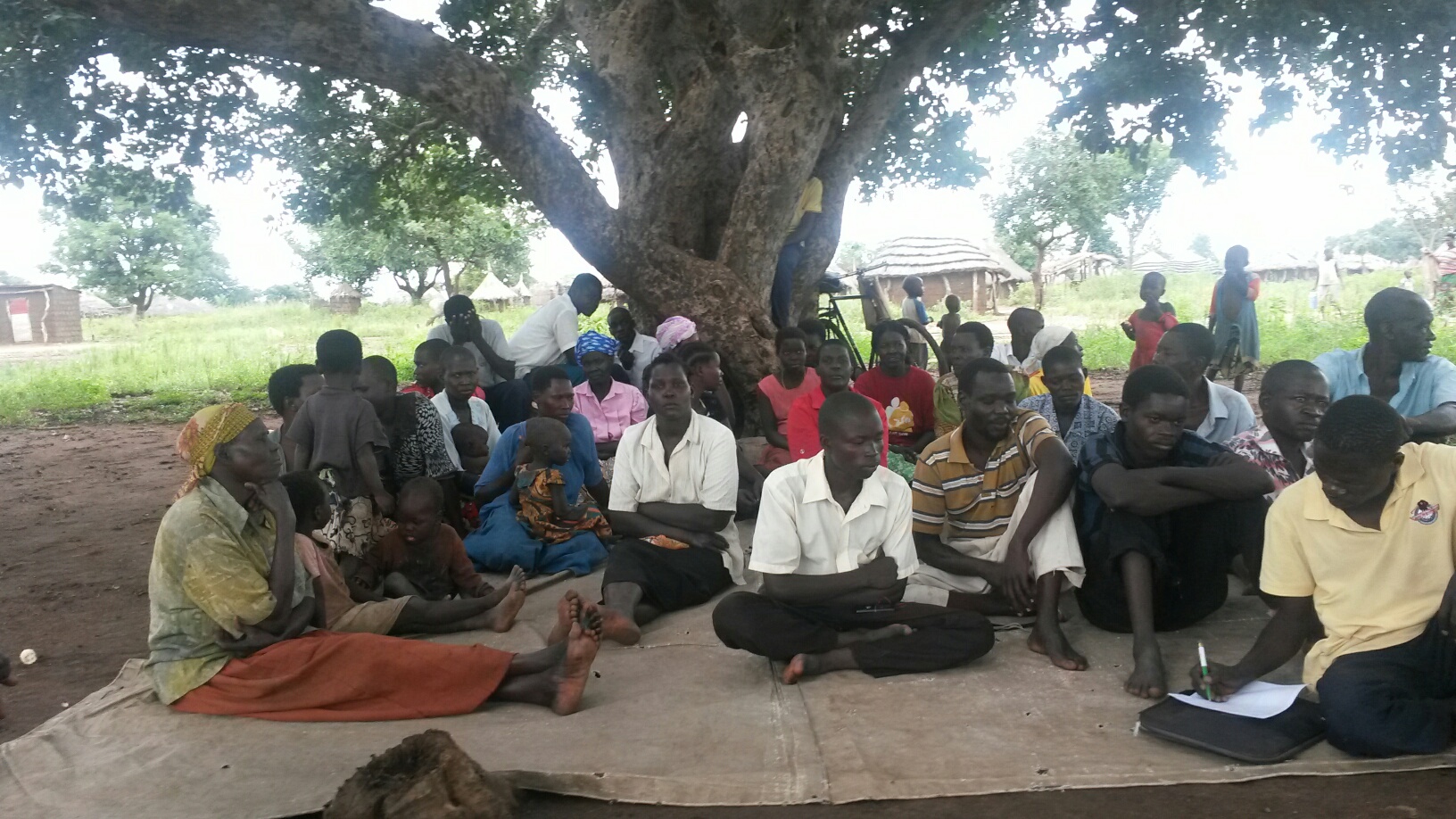
The program focuses on developing people’s capacities at group level through season-long participatory training on crop production (e.g. drought-tolerant crop varieties, backyard gardening, post-harvest techniques, etc.), livestock production (e.g. animal nutrition and health and disease control) and land and water management within a disaster risk management framework.
The groups also engage in savings and loan schemes to trigger income generating activities (e.g. commercial vegetable production, beekeeping, etc.) and group marketing activities that are often implemented during the learning process. In some Agro-pastoral Field Schools, members have also developed a resilience or solidarity fund through savings and loan schemes that can be used to cover needs in case of emergencies.
Multi-faceted contributions of the approach
The approach contributes to increase sustainable production thanks to improved skills and knowledge, as well as cash availability to strengthen the application of good agricultural and environmentally sound practices.
The resilience of communities to shocks and risks is also increased thanks to the accumulation of assets (in cash, in kind, knowledge, human resources within the groups, etc.) and diversification of livelihood activities and sources of income.
In Karamoja, I personally experienced the case of a farmer who offered me a well-fed turkey, proudly saying that for years he had been dependent on humanitarian aid programme, but now, thanks to FAO, he was back on his feet, and able to feed his family and generate income. The caisse de resilience had enabled this farmer to restore his dignity and help his community members.
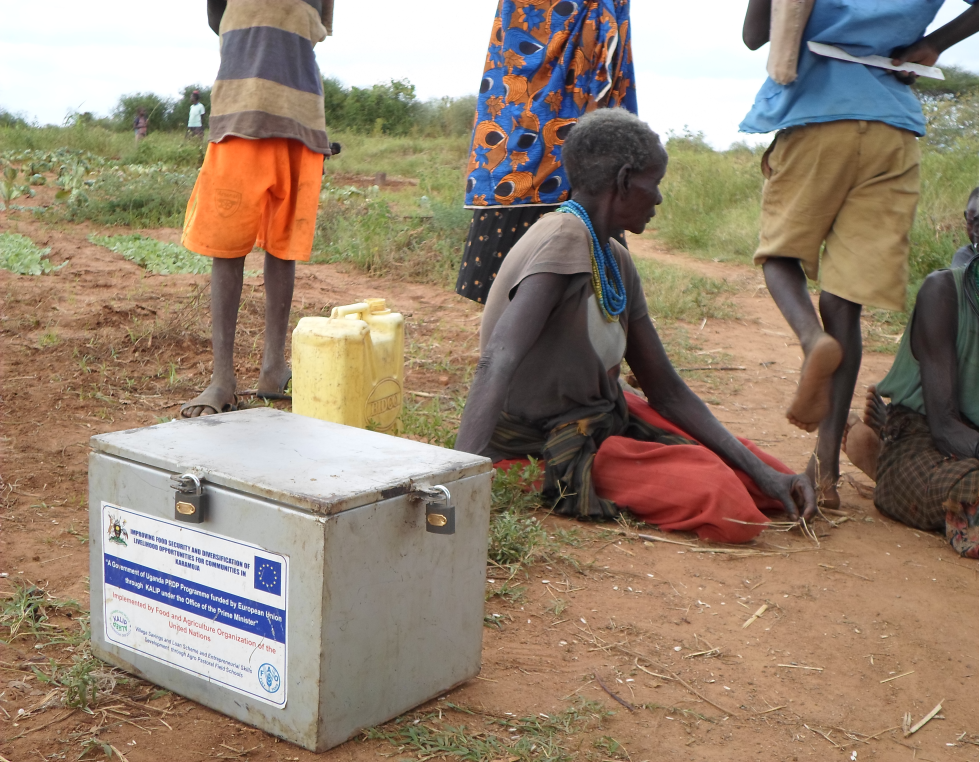
Other important aspects include the fact that women are increasingly involved in household decision-making and have financial autonomy, with a clear reduction of gender-based violence in the household. The main contributing factors are the division of labour (women are now also involved in livestock practices, land management, etc., while men engage in household tasks) and reduced dependency of women as they now have increased access to income and assets.
Women have told me that they feel that they are now seen as ‘providers’ instead of ‘beggars’ by their husbands.
Scaling up
Following the successful experiences in Uganda, as well as through similar projects in Central America, FAO is scaling up the approach through its implementation in a number of countries (Central African Republic, Malawi, Mali and Chad) that have tailored it to the local contexts and challenges.
The caisse de resilience has proven to be flexible and adaptable to various contexts, providing FAO and partners with the opportunity to address needs ranging from emergency situations to development challenges.
A minimum investment is necessary ranging between USD 300 to USD 400 per household
With the process of scaling up, it is important to ensure that high quality technical standards are maintained and that strategic partnerships are established at the local level to develop and strengthen capacities. A minimum investment is necessary ranging between USD 300 to USD 400 per household, which is a remarkably modest amount to build capacities and promote self-reliance and sustainability.
Few more images from the Karamoja, Uganda:



